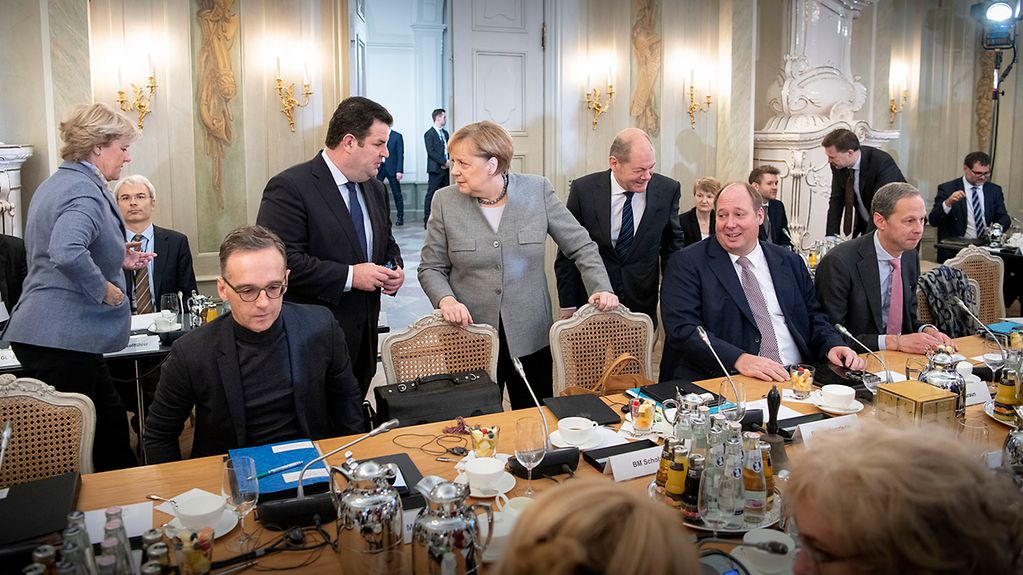Schloss Meseberg
At its digital retreat on Sunday and Monday in Meseberg, the Cabinet is addressing key aspects of digitalisation. On the agenda are mobile communications and digital currency, and the question of how dangerous professionally faked videos are for our democracy.
3 min reading time

Today's meeting in Meseberg looks at new developments in the fields of artificial intelligence and digital currency
Photo: Bundesregierung/Bergmann
To connect hitherto unserved areas to the mobile communications network, Federal Transport Minister Andreas Scheuer aims to close gaps in coverage with the help of fibre-optic cables and mobile phone masts. "We are working under time pressure," said Andreas Scheuer with a view to the expansion of the mobile communications network. There are "many places where it takes too long to obtain permits. That is why we will be establishing a pilot system with the federal states and local authorities to serve these areas too," he declared on Sunday in Meseberg.
At the start of the two-day government retreat, the spotlight was not only on expanding the mobile communications network, but also on new online services for citizens and businesses. In future it should be possible to apply for state benefits, for instance, swiftly and more easily thanks to e-government services, stressed Federal Family Affairs Minister Franziska Giffey.
New developments in the fields of artificial intelligence and digital currency are top of the agenda on Monday, when a regular Cabinet meeting will also take place. During the meeting the government will present its own initiatives, engage in discussions with experts and meet with digital pioneers.
The topics in detail
Better mobile communications coverage
Germany’s infrastructure must be expanded to handle digital change – that is the crux of the Gesamtstrategie Mobilfunk (overall strategy for mobile communications). One important point is that the government intends to invest about 1.1 billion euros from the Digital Infrastructure Special Fund in developing 5,000 inaccessible mobile communications sites. The mobile communications strategy aims to put Germany in a leading international position with across the board 4G coverage. This is also an important preconditions for the roll-out of 5G, where the Federal Republic of Germany aims to become more of a global trail-blazer.
Young start-up visits Cabinet
The German and international start-up landscape would be inconceivable without digitalisation. As well as ensuring the availability of various assistance options for people with ideas for new businesses, the German government seeks direct contact with creative young people from the digital sector. The founders of the technology taskforce "Tech4Germany" have a special mission, which they will be presenting to the Cabinet in Meseberg.
"Deepfakes" – a challenge
Artificial intelligence offers many opportunities, but also poses many challenges, especially for our democratic order. Experts agree that in future elections could be massively influenced by "deepfakes" in which artificial intelligence is used to falsify images and videos, such that they are indistinguishable from the original. In Meseberg, the government will discuss strategies for addressing deepfakes with experts.
Handling data responsibly
How can we manage, in a data-driven world to ensure that value creation is responsible and innovative? This is another important question on the agenda of the Cabinet retreat. Bundesbank President Jens Weidmann will be in Meseberg to discuss the opportunities and risks posed by digital currencies, or cryptocurrencies as they are also known.
Schloss Meseberg in Brandenburg has been the government guest house since 2007. It is about 60 kilometres north of central Berlin in Meseberg, a district of Gransee, which has a population of 150. It welcomes guests from around the world and is used by the government to come together outside the capital city and discuss important aspects of government policy.